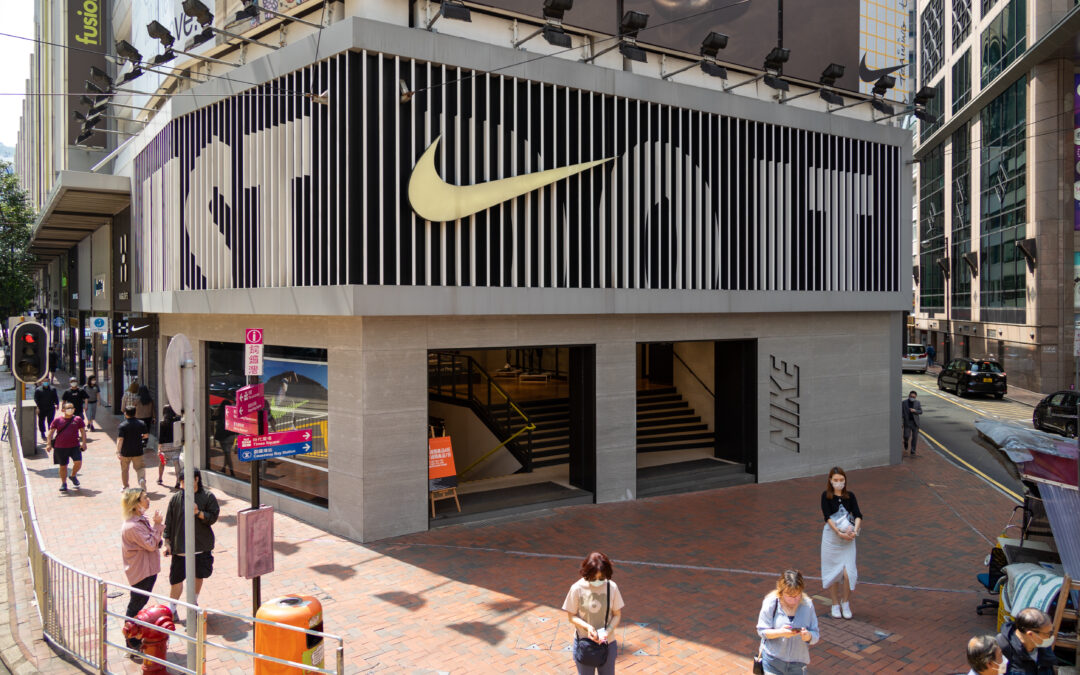T’was a fateful night in 1988, when Wieden + Kennedy’s advertising firm made history. The Nike slogan that has endured decades was coined by advertiser Dan Wieden, a man whose legacy work was inspired by a murderer.
Just Do It.
Simple. Clear. Memorable.
A slogan that is synonymous with its brand. This famous tagline has a rather eerie origin, for Wieden was inspired by the last words of a death row inmate who was about to be executed. Wieden was amazed by what these 3 words conveyed and believed they fit Nike’s vision like a glove. And he was right.
Nike’s “Just Do It” campaign launched in the 1980s, and its success was complemented by the introduction of some of the brand’s greatest shoes, including the Air Jordan 3s, the Air Trainers, and the Air Revolutions (NPR). Together, they created a campaign that positioned Nike as an industry leader while simultaneously revolutionizing the world of slogans.

But why is Nike’s slogan so memorable and so effective?
First, we need to understand what a slogan achieves. Slogan are short, memorable phrases that articulate a brand’s mission, position, or attributes (Dass et al., 2014). A slogan complements the brand’s name and logo to provide a holistic story. On the consumer side, slogans tend to provoke instant recall of a brand, build brand-attitude and, in some cases, drive people to purchase a product or service (Dass et al., 2014).
A slogan is crafted by marketers to either prime brand recall or drive the likability of a brand’s image. A slogan’s purpose (either recall or likability) is, in turn, influenced by the type of situation a consumer is in. For instance, in situations where people are purchasing products without much thought, recall works well to increase impulsivity in the decision-making process. For instance, Just Do It evokes instantaneous recall of Nike, a well-established, popular, and reputable shoe brand. Thus, people instantly recognize Nike through its slogan, promoting a new shoe line that persuades them to buy the shoes, taking the next step in their lives.
On the other hand, if a situation calls for a more researched decision, then slogan likeability is the winner. For example, a home insurance company must establish trust with people to influence their decisions. Take State Farm’s Like a good neighbor. State Farm is there. This slogan conveys a sense of assurance and coverage from State Farm, increasing the likability of the brand, as people want to feel protected and cared for by their insurance provider.

But what makes a slogan effective?
The ultimate slogan provides a clear message on what a brand offers. Studies have shown that the less the confusion, the higher the likability (Sidelinger & McCroskey, 1997). In Nike’s case, Just Do It. is clear, concise and motivating; it inspires consumers to do anything they put their minds to.
Furthermore, creativity is huge! Creative slogans increase brand recognition since they generate positive emotional responses from consumers. Moreover, rhyming slogans are well-liked and easy to recall in psychological studies (Dass et al., 2014). Just Do It. is creative in its messaging; the slogan taps into our emotional drives of motivation and grit to push action. Thus, the slogan’s creativity comes from its intelligent messaging.
Dan Wieden understood the power of a memorable slogan, and Vaquero Advertising does too! Our talented and qualified team focuses on the correct methodology to create a likeable and memorable branding strategy for your brand.
#Nike #JustDoIt #BrandingStrategy #MarketingPsychology #SloganPower #AdvertisingHistory #BrandRecall #MarketingStrategy #MemorableSlogans #CreativeBranding #BrandStorytelling #EmotionalBranding #ConsumerBehavior #MarketingInspiration #FamousTaglines #BrandLikeability #NikeCampaign #DanWieden #AdStrategy #MarketingTips

